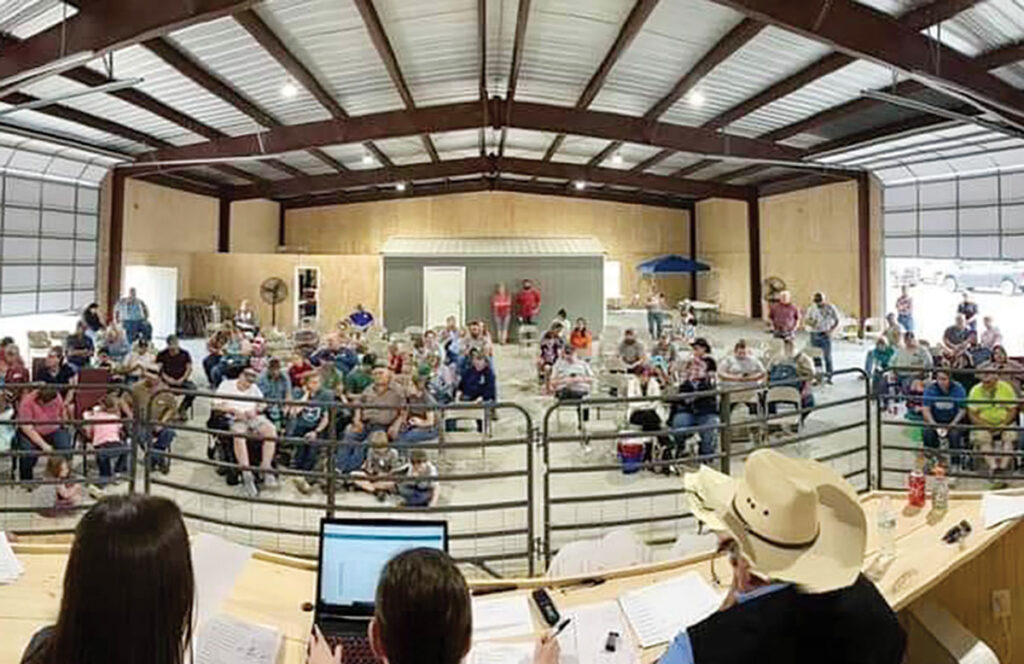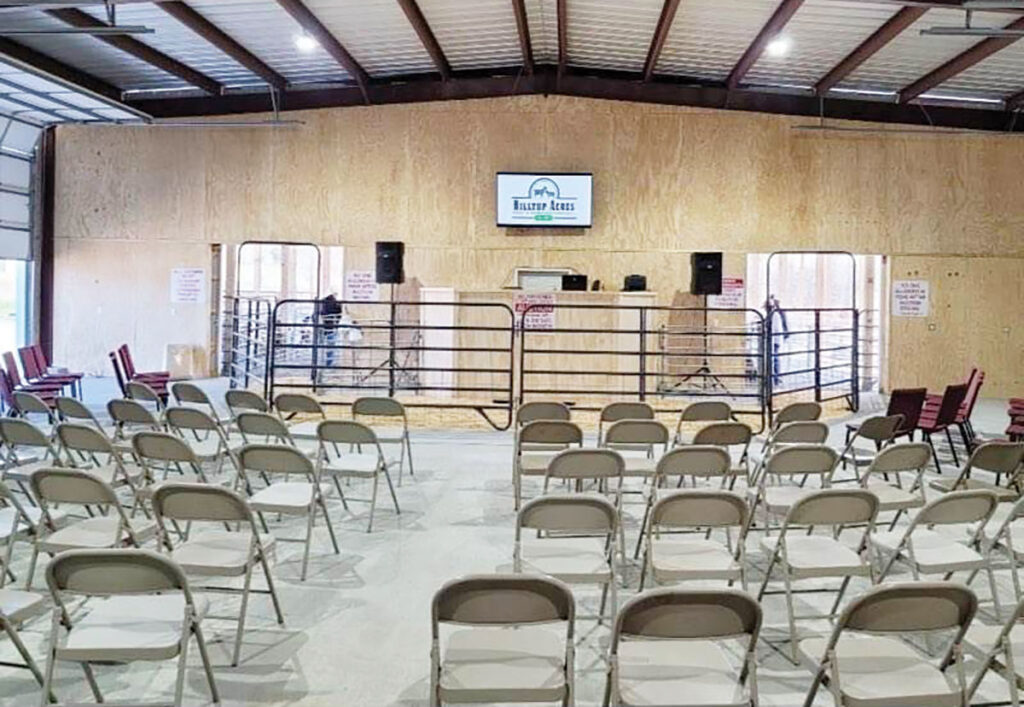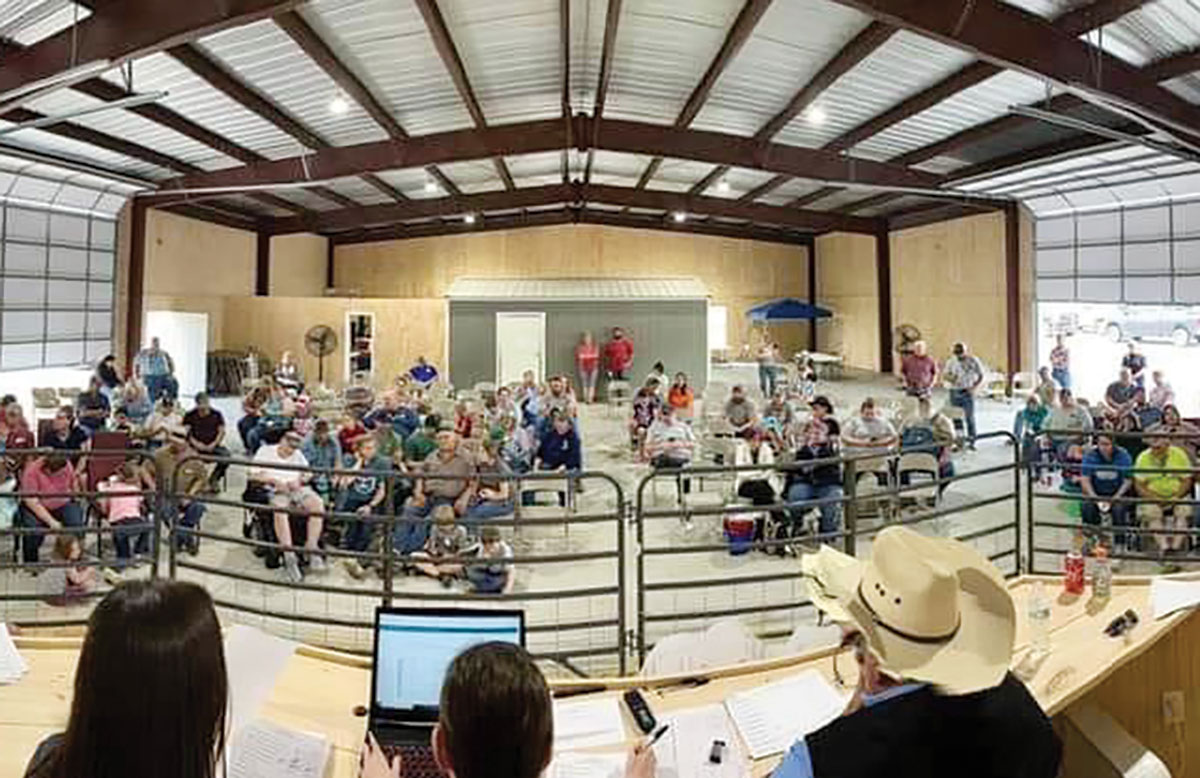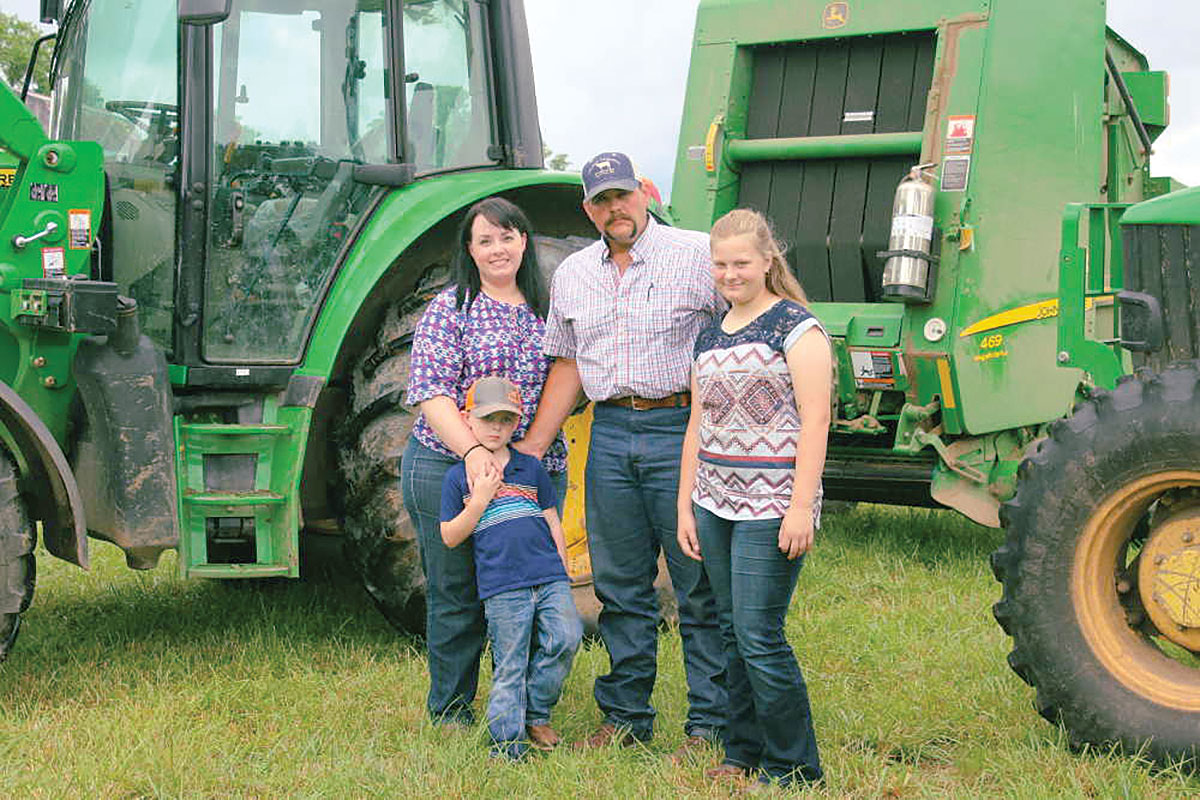
Hilltop Acres Sheep and Goat Auction began in 2021 and are continuing to grow
ROMANCE, ARK. – As the number of small ruminant producers grows, so does the need for services specialized for sheep and goat producers.
Seeing the need for a livestock market that caters to sheep and goat producers in their area, the Davis family started Hilltop Acres Sheep and Goat Auction in 2021 in Romance, Ark. It’s the first livestock market for owner Neil Davis, his son Jason Davis, Jason’s son Nathan Davis and uncle Mike Davis.
“It’s something we wanted to do for several years,” Jason said. “We’re in the auction business, as far as real estate, farm equipment, we’ve got a toe in a little of everything. It’s just something we saw a need for in our area. We decided to put one in, and it’s grown ever since.”
The sale started in what Jason described as a “big shed.”
“It was 60-by-80, and we used it for our farm machinery auctions,” Jason said. “I do online personal property auctions, so it needed some walls, so be build some walls around it. When we started with the sheep and goats, we added a 60-by-60 for pens, and we are building pens outside now.”
Jason estimated a capacity of 300 to 400 people inside the auction area. Pens under cover can handle an estimated 500 to 600 head of sheep and goats. With additional outdoor penning, the total capacity can reach nearly 1,000.
“Since we put the auction in, more and more people have gotten into the industry,” Jason said. “They are hobby farmers or are trying to develop a herd.”
Sales are the first and third Saturday of each month, drawing sellers and buyers beyond White County, Ark.
“We’ve had people from Missouri, all the way from Texas, bring us their animals and come to buy,” Jason said. “We have buyers come in from the neighboring states and from all over Arkansas.”
Hilltop Acres is not the only sheep and goat auction in the region, but because of the growing number of small ruminants in the area, their sale is also growing.
“The biggest sale is up in Northcentral Arkansas, and it’s been around for a long, long time, but we wanted to do something down in this area,” he added. “We have a lot of take-home buyers and not just terminal market. We have order buyers, but we have a whole lot more people who buy animals to take home to add or start their herds and flocks. That take-home market is a better-quality animal. We’re seeing the sheep market really growing, but those big-bodied meat goats, like Spanish, Boer and Kikos, are a big market. The Nigerian Dwarf market is growing. People are buying them for pets.”
To ensure customers are getting the best quality possible, a veterinarian is on-site to inspect animals.
“She’ll go through the pens on sale day to ensure everything is alright,” Jason explained.
Haired sheep numbers at the sale outweigh wooled sheep.
“We get a few woolies, especially after fair season, but it’s primarily haired sheep, from Dorpers and Katahdins,” Jason said.
To help producers get the best price possible for their animals, Jason and the Hilltop Acres crew utilize social media to share photos of animals coming to the sales, but there are always a few surprise animals come sale day.
The Davises monitor national sale prices to help keep their customers abreast of trends.
“We have people call us all the time and what to know what the market is doing,” Jason said. “I try to be as honest as I can. Here lately, I’ve turned away business because the market is down. I think it will be better in October, and I’ve told people I would rather they bring it and be surprised rather than disappointed.”
Producers with a single animal or those wishing to disperse their entire herd or flock are welcome at Hilltop Acres.
With the growing number of farmette and homestead owners, Jason said the sheep and goat markets are also growing in the Ozarks.
“We are seeing more of the 5-, 10-, 20-acre farms,” he explained. “We have a farm really close to the market where they have several head of goats where they would be lucky to put one cow.”
The Ozarks is cattle country, but Jason said the sheep and goat industry has a toehold in the region, and many of the negative stigmas regarding small ruminant production are beginning to fade.

“A lot of cattlemen are saying this is something they need to look at,” Jason said. “A lot of farmers are getting older, and it’s not as physically easy to raise that cow anymore, but they can handle sheep and goats.
“Out west of us, like out in Oklahoma, you are doing to see more of that. It’s a hard sell on some of these cow guys, and we have a cattle background too. I tell my buddies, ‘You need to rotate and put these sheep and goats behind them or run them dual.’ The ones who put pen to paper admit they make more with the sheep or goats than they can with their cows.”
Hilltop Acres averages about 250 to 300 head in each sale. Jason said the summer months are usually a little lighter. They see higher numbers, and higher prices or some classes of sheep and goats, in preparation for certain holidays, such as Ramadan.
“You see that January, February market really climb about them,” Jason said.
In addition to holding regular sales, Hilltop Acres wants to be a resource for sheep and goat owners.
“We have our extension people out and give talks on small ruminants,” Jason said. “We actually have one coming up in October with the White County Extension. We try to put things on like that to try and help people get bigger in the industry. We talk about more parasite-resistant breeds, the FAMACHA, and getting fecal samples. We’ve had veterinarians come in and set up microscopes and let people see what a barber pole worm looks like. We don’t want to just be the livestock market; we want to be a place for education. We want people to do better in their business because if they do better, we do better.”
The information presented is also valuable for first-time sheep and goat producers, as well as for those cattle producers thinking about adding small ruminants to their livestock operations.
“With cattle prices as high as they are, a lot of cattle producers are downsizing their herds,” Jason said. “They have this land, this grass, and sheep and goats might be another form of income for them until cattle prices come down. It’s something they can do to utilize their land instead of brush-hogging it or cutting it for hay.
While they saw a need for a sheep and goat sale, the Davis family are not sheep and goat producers.
“I would love to have 300 head of sheep myself because of the market on them, and they are easy to keep,” Jason said. “I see it as a passive income. There is work involved in it, but they pretty much take care of themselves. One day I would like to have my own flock, but there’s a lot of infrastructure to be built as far as fences and such.
“However, as far as what we do, we are in the auction business and don’t want to compete for buyers with our customers, so we don’t buy, sell or trade.
As Hilltop Acres Sheep and Goat Auction grows, its facilities are also increasing.
“We’re coming in with heavier pens to run cattle,” Jason said. “We don’t necessarily want to be a cattle auction or market, but we can do the smaller calves. We might look into ponies or being a horse market, maybe even some caged animals, but that’s a ways down the road.
“We’re still growing. Every sale we have new customers. It just amazes me the new faces we see. We ship in so much meat from Austrian, New Zealand, Mexico, and wherever; we ship in millions of metric pounds of goat meat every year, so there is still a big need for producers here. We’re also seeing more stores carrying lamb.”







